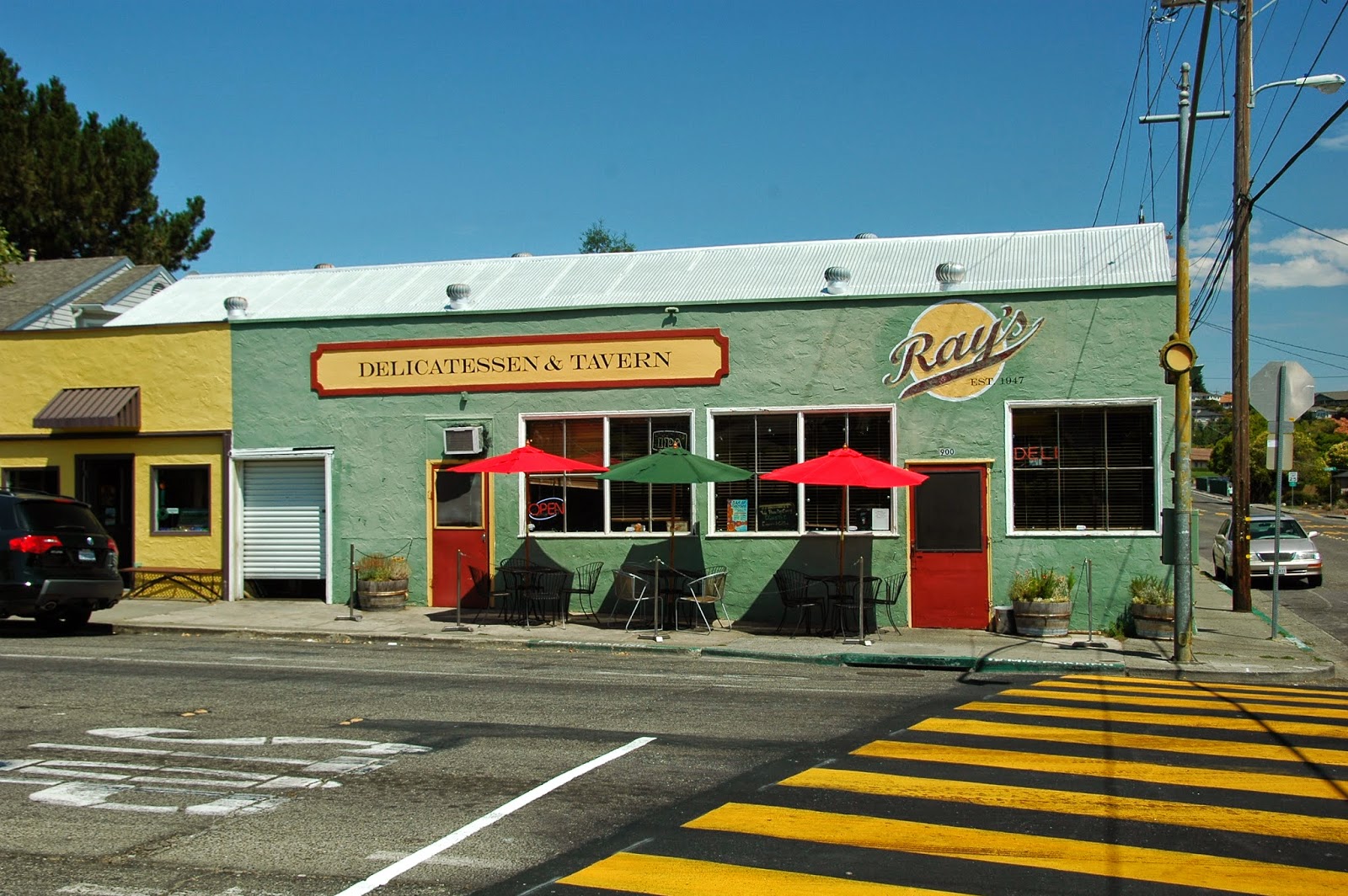 Many years
ago, my wife and I took an anniversary trip to London. Planning for a stay of nearly two weeks and unwilling
to pay hotel prices for that many nights, I looked for a flat to rent. I found one a few blocks south of St. James
Park. It was a fine location from which
to explore London with the St. James Tube station only a block away.
Many years
ago, my wife and I took an anniversary trip to London. Planning for a stay of nearly two weeks and unwilling
to pay hotel prices for that many nights, I looked for a flat to rent. I found one a few blocks south of St. James
Park. It was a fine location from which
to explore London with the St. James Tube station only a block away.
Between the
flat and the Tube station was a small pub.
Most of the week, it was a sleepy place.
As I recall, my wife and I ate pub fare there one evening and I might
have tipped a pint there on another occasion.
The place was usually more than half empty.
But on
Friday evenings, it boomed. All the
nearby office workers stopped in for a pint or two before jumping onto the Tube
to begin their weekends. There were more
patrons than the establishment could contain, so they spilled onto the
sidewalk. And when the sidewalk was
full, they moved into the street, still holding their beer mugs. (Alcohol control is different in England than
in California.)
Eventually, the
pub patrons filled enough of the street that the two-way traffic had to take
alternating turns using the only lane that remained open and pedestrians had to
work their way around the edge of the crowd.
But no horns were honked and no one complained. Everyone seemed to give a free pass to
good-natured Friday evening drinking.
Although I
had no interest in braving the Friday evening mob for a pint of my own, I
enjoyed the scene, all the while doubting that I would see the equivalent in
California.
Adjusting
for the fact that California Department of Alcoholic Beverage Control would
never allow drinkers to congregate off the sidewalk blocking a traffic lane, I
wrong. Within the posts and chains that
limit the area of alcohol consumption, Ray’s Delicatessen and Tavern on the
west side of Petaluma is much like that London pub.
And even
outside of the posts and chains, Ray’s non-drinking customers tend to
congregate on the sidewalks and in the first few feet of the crosswalks,
occasionally causing traffic to slow.
Only a few drivers show annoyance.
It’s a
friendly, comfortable, non-pretentious place that seems to expand and contract
to conform to the number of patrons.
In fact, one
can argue that Ray’s beats the London pub on a couple of points. In place of English pub fare, Ray’s deli serves
sandwiches and salads that beat pub fare any day.
And more
importantly to urbanism, Ray’s is tucked within a residential
neighborhood. Having a friendly,
comfortable place for good food and beverage somewhere in town is a good thing. Having it a walkable distance from home is even
better. (I live a long block from Ray’s.)
Ray’s and
its small group of westside brethren, a picturing framing shop next door, a
convenience market, barbershop, and lighting shop a short distance down Western
Avenue, and the DeSchmire restaurant on Bodega Avenue, have the distinction of
being the most isolated businesses in Petaluma, furthest from any other
commercial establishment. (If I’ve missed other candidates, let me
know.)
And those
westside stores are fine additions to the community. Every bit of business that can be conducted
on foot is one less car on the road.
One of the
founding fathers of urbanism, Andres Duany, regularly makes a point about
Charleston, South Carolina. He loves the
city and uses it to judge zoning codes.
In his phrase, “If you can’t build Charleston under a proposed zoning
code, then the zoning code is no good.”
I’d make the
same argument about Ray’s. If your
zoning code wouldn’t allow you to build another Ray’s anywhere in the
community, then your zoning code isn’t good enough. And very few zoning codes meet that test.
Drop by
Ray’s one day for lunch and ask yourself if you’d want a Ray’s within a
walkable distance of your home. If so,
congratulations, you’re an urbanist. And
I know a London pub you’d really enjoy.
In my next
post, I’ll build on a theme related to Ray’s, community tables.
As always,
your questions or comments will be appreciated.
Please comment below or email me.
And thanks for reading. - Dave Alden (davealden53@comcast.net)
No comments:
Post a Comment